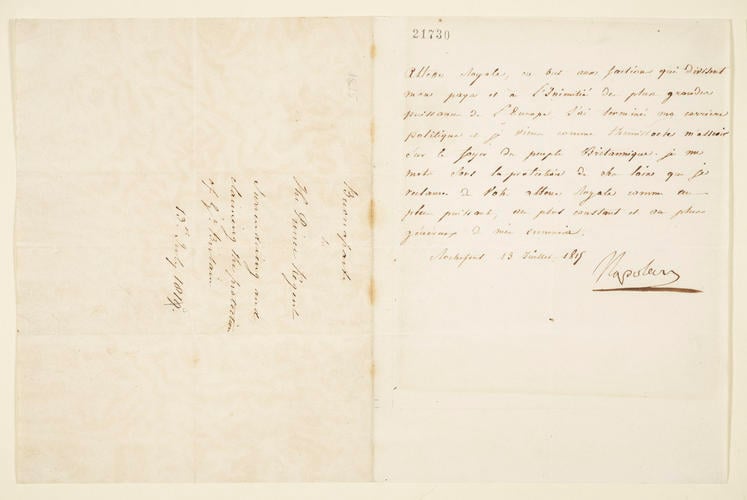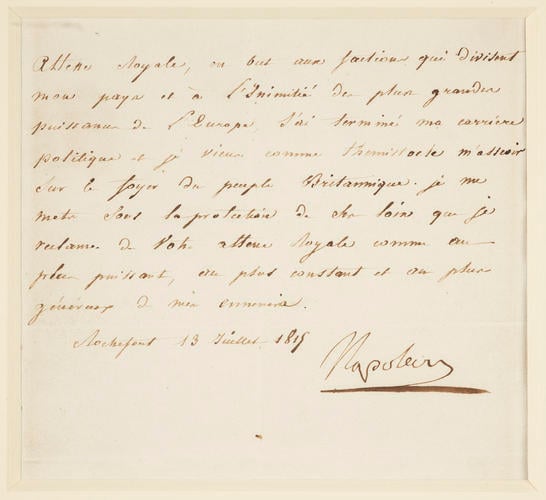Letter of surrender from Napoleon to the Prince Regent, 13 July 1815 1815
Manuscript | 24.2 x 18.4 cm (sheet of paper) | RCIN 452438.d

Napoléon I, Emperor of the French (1769-1821)
Master: Relics of Napoleon Item: Letter of surrender from Napoleon to the Prince Regent, 13 July 1815 1815

Napoléon I, Emperor of the French (1769-1821)
Master: Relics of Napoleon Item: Letter of surrender from Napoleon to the Prince Regent, 13 July 1815 1815


-
A letter of surrender, in French, written by a secretary and signed by Napoleon Bonaparte on 13 July 1815.
After the Battle of Waterloo, Napoleon abdicated and attempted to flee to Europe, but was prevented by a British blockade of French ports. He handed himself to Captain Frederick Maitland, commander of HMS Bellerophon, and wrote this letter of surrender to the Prince Regent. In the letter, Napoleon compares himself to Themistocles, a Greek statesman who threw himself on the mercy of the Perisan ruler Artaxerxes, and was received with honour.
Translation:
Your Royal Highness A victim to the factions which distract my country, and to the enmity of the greatest powers of Europe, I have terminated my political career, and I come, like Themistocles, to throw myself on the hospitality of the British people. I put myself under the protection of their laws; which I claim from your Royal Highness, as the most powerful, the most constant, and the most generous of my enemies. Rochefort 13 July 1815
Napoleon
Transferred to the Royal Archives, February 2016Provenance
Sent to the Prince Regent by Napoleon Bonaparte, 13 July 1815.
This letter was stored at Apsley House but is now back at the Royal Archives.








